
 0 Comment(s)
0 Comment(s) Print
Print E-mail China.org.cn, November 21, 2024
E-mail China.org.cn, November 21, 2024
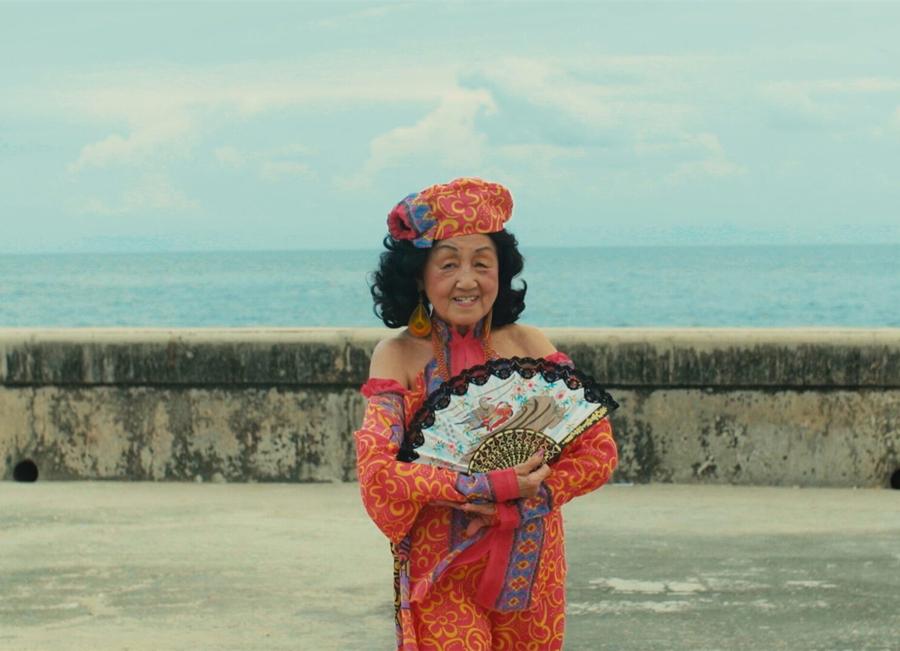
Coby Yee poses for a photograph. [Photo courtesy of Round Space Studio]
Luka Yuanyuan Yang never imagined a chance encounter in Las Vegas would spark a six-year journey to preserve a forgotten slice of Chinese American history. The Chinese visual artist and self-taught director met 92-year-old dancer Coby Yee, whose vibrant performance captivated her instantly. "It was like love at first sight," Yang recalled. "She was full of energy, in great shape, and very creative. It felt like watching an entire life unfold, gracefully spinning on stage."
Yee, once a burlesque star of San Francisco's Chinatown nightclub scene, became the central figure in Yang's documentary "Chinatown Cha-Cha." The film celebrates a group of elderly women whose passion for dance defies time and aging while grappling with the erasure of Chinese American cultural history.
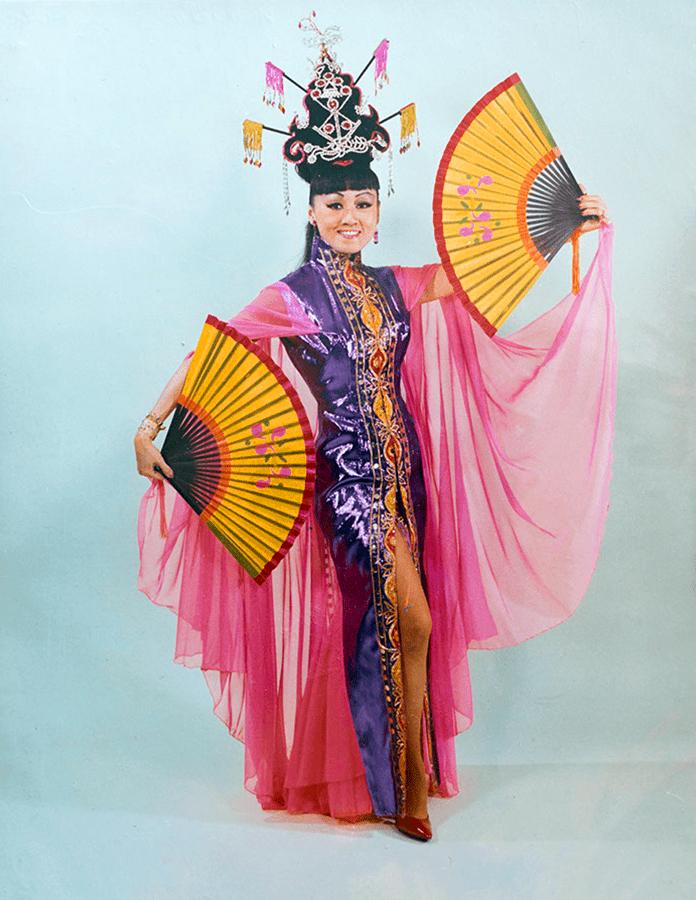
Coby Yee poses in a self-designed dress in her younger years as a dancer. [Photo courtesy of Round Space Studio]
Yang's journey began in 2018 during a six-month residency as a visiting scholar in the United States, researching Chinese artists in American history. She found herself drawn to Esther Eng, a trailblazing Chinese American filmmaker whose 1939 film "It's a Women's World" championed independent women with an all-Chinese, all-female cast. However, the film is now presumed lost and has faded into obscurity — much like the performers it celebrated.
"Eng's legacy had almost been erased," Yang told China.org.cn, noting how anti-Asian racism in early 20th-century Hollywood stifled talents like Eng and Anna May Wong. Inspired by Eng, Yang sought to shine a spotlight on overlooked Chinese American women.
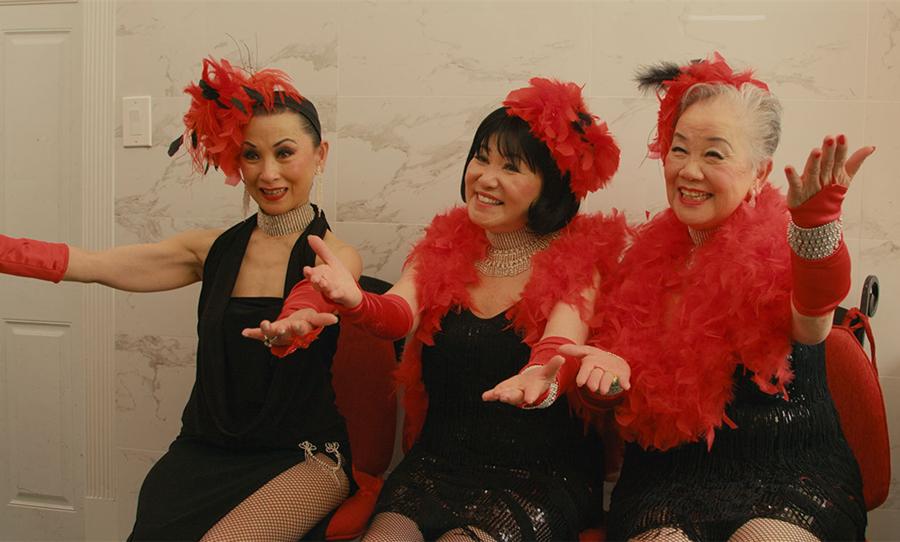
(Left to right) Dancers Mimi Chen, Cynthia Yee and Emily Chen from the Grant Avenue Follies. [Photo courtesy of Round Space Studio]
In San Francisco, she discovered the Grant Avenue Follies, a troupe of women aged from 70 to 90 led by 73-year-old Cynthia Yee (no relation to Coby). "I thought, this is a very contemporary version of 'It's a Women's World,'" Yang said. "Their energy and vitality were irresistible. I knew I had to make a documentary about them."
The film follows the troupe as they embark on a musical road trip spanning San Francisco, Las Vegas, Hawaii, Havana, Beijing and Shanghai. Notably, in Cuba, the troupe visited Havana's vanishing Chinatown and performed for the local Chinese community. In Shanghai, Coby Yee danced on the Bund, tearfully fulfilling her father's unrealized dream of returning to China with his whole family.
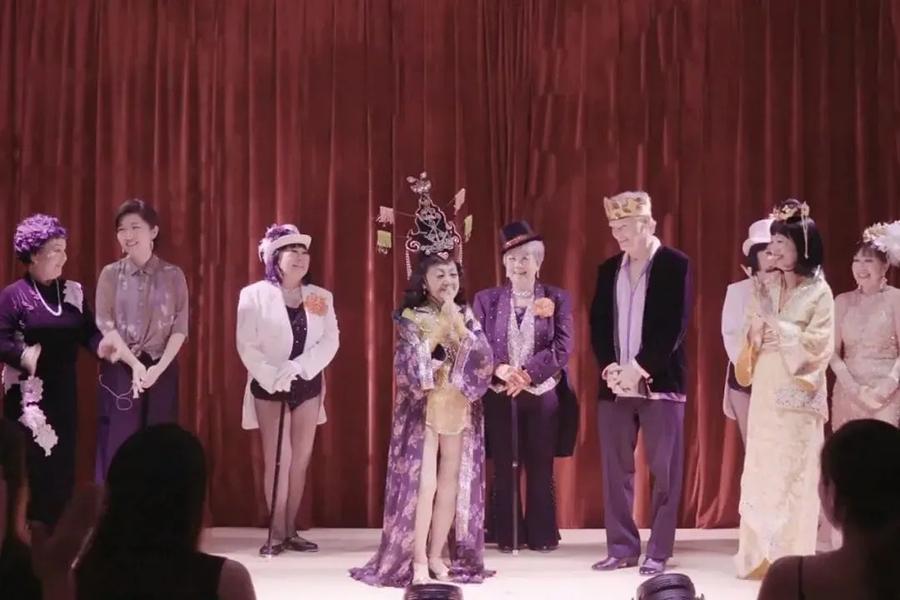
The Grant Avenue Follies members perform in Shanghai. [Photo courtesy of Round Space Studio]
The documentary also captures the bittersweet realities of the dancers' lives. Coby Yee, a second-generation immigrant, was a nightclub owner and costume designer in San Francisco during Chinatown's heyday. Despite her talent and being hailed by newspapers as a "daring Chinese dancing doll," she faced marginalization, and her intricate costume designs, which blended diverse Asian cultural motifs, went largely unnoticed.
However, Yang's film does more than document history; it builds connections. "What I wanted to find was the link between us — Chinese and Chinese Americans, past and present," she explained. "These women lived through an era of profound unfairness, yet they created possibilities and persisted with grace. Their resilience and passion, even in old age, is what I hope to share."

A poster for the documentary "Chinatown Cha-Cha." [Image courtesy of Round Space Studio]
Coby Yee sadly passed away in 2020, just a week after her final performance. She never stopped dancing, while her death marked the end of an era but not the spirit of the Grant Avenue Follies. The troupe continues to dance, earning new recognition for their viral rap video against anti-Asian hate in 2021 and appearances on television shows.
Reflecting on Yee's passion for dance and life, Yang recalled a poignant moment during a visit to the Forbidden City in Beijing. "Coby left her wheelchair, walked down the stairs, began humming, and the other grandmas joined in song. Without music, she started dancing. It was one of my favorite shots."
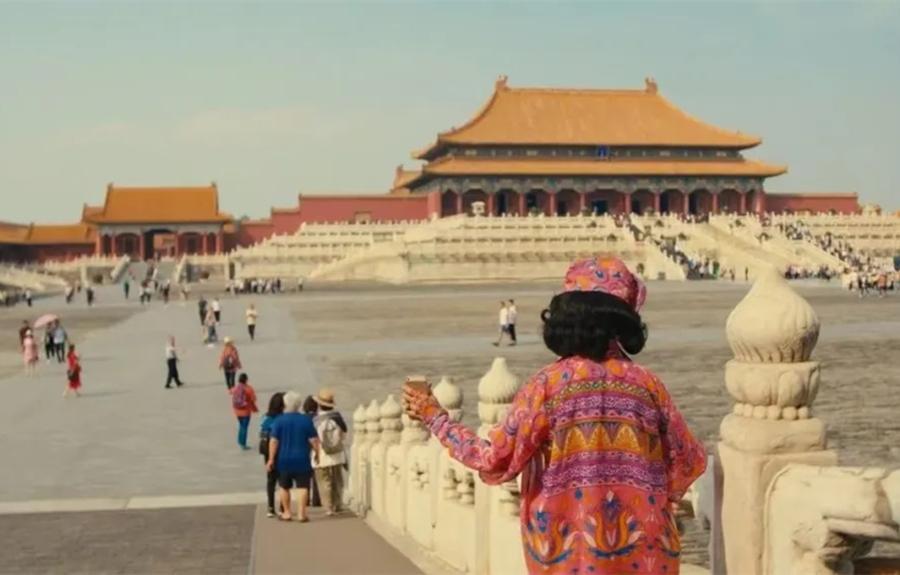
Coby Yee walks down stairs in the Forbidden City in Beijing. [Photo courtesy of Round Space Studio]
For Yang, "Chinatown Cha-Cha" is more than a film; it's a testament to the vitality of life. "Coby is gone, but her spirit inspires us still," she said. "I hope this film reminds people to embrace resilience and joy, no matter their age."
The story of these dancing grandmas offers not just a window into history but a mirror reflecting timeless truths about perseverance, creativity and the human spirit. "We'll die, but the story goes on," said Stephen King, Coby Yee's partner, in the film. Through "Chinatown Cha-Cha," it surely will.